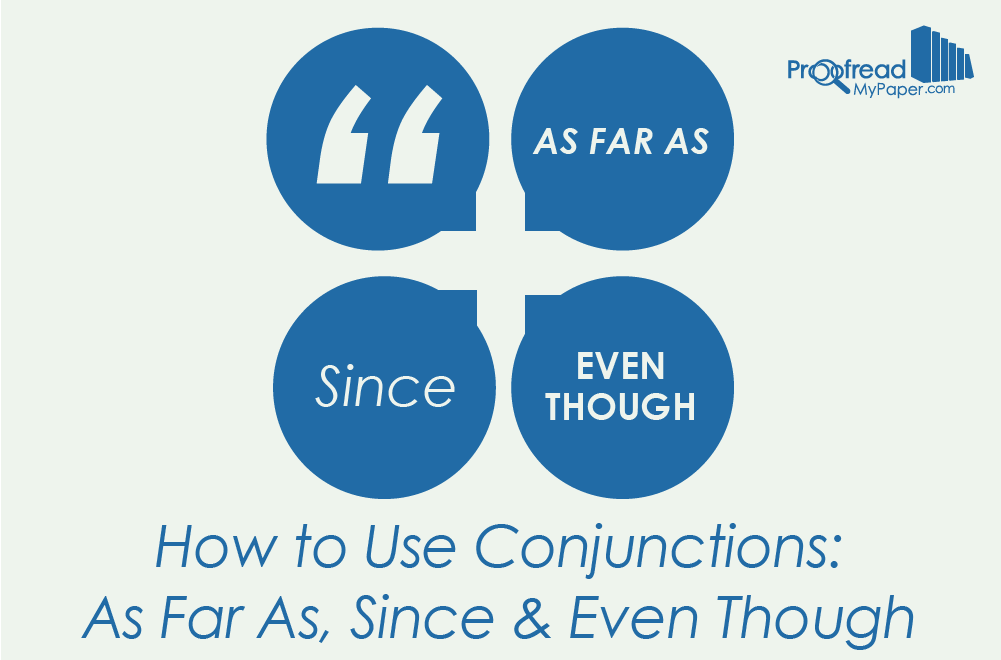We use conjunctions (e.g., “and” or “but”) to build grammatical sentences, which in turn allows us to express ourselves clearly. Every conjunction has its own meaning though, so it’s a good idea to learn a few more!
In this post, we take a closer look at three conjunctions that could help in your academic writing: “as far as,” “since” and “even though.”
As Far As (To the Degree That)
Used as a conjunction, “as far as” means “to the degree or extent that.” It therefore qualifies statements that apply only under certain conditions.
The phrases like “as far as we know,” for instance, signals that something is based on incomplete information:
The experiment poses no risk as far as we know.
Here, “as far as” suggests the sentence is true to the best of our understanding. However, it leaves open the possibility that it is based on imperfect knowledge.
Because “as far as” is a subordinating conjunction when used like this, it always joins a dependent clause (“as far as we know”) to an independent clause (“The experiment poses no risk”).
Since (Time and Justification)
Also a subordinating conjunction, “since” has two distinct uses. The first is to specify that something happened after a particular point in time:
Since learning to dance, I’ve felt more graceful.
Find this useful?
Subscribe to our newsletter and get writing tips from our editors straight to your inbox.
In this case, “since” shows that the speaker started feeling this way only after learning to dance.
The second meaning is to introduce a reason or justification for something (making it a synonym for “because”):
Since we are interested in how people perceive retail experiences, we have adopted a qualitative research approach.
Here, the word “since” joins a clause about the reason for picking a research approach to the main clause about the approach chosen.
Even Though (Despite the Fact That)
The term “even though” is used to introduce contrast in a sentence, like saying “despite the fact that”:
Even though he was completely deaf from around 1820, Beethoven began work on his Ninth Symphony in 1822.
The difference between “even though” and “though” is simply that “even though” is more emphatic. We therefore use “even though” when introducing a particularly surprising or unexpected contrast.
